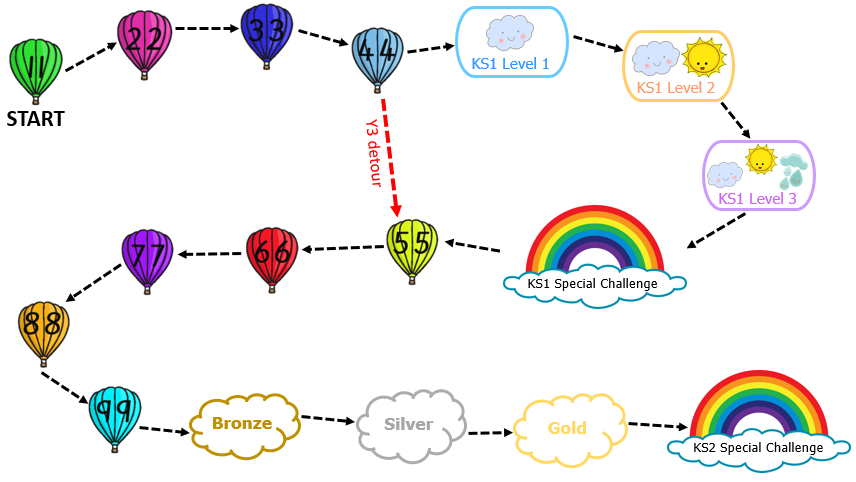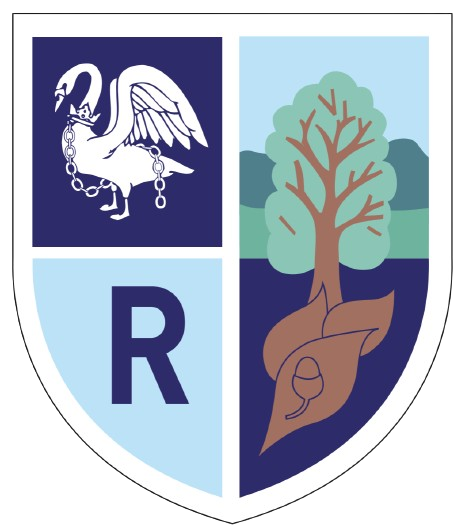Mathematics
Intent:
At Robertswood, we believe that maths is essential to everyday life and is the foundation to many other subjects.
Our aim is for all children to:
· Become fluent in the fundamentals of Mathematics
· Have the ability to reason mathematically
· Solve problems by applying their Mathematics skills
We provide children with an opportunity to deepen their understanding whilst enabling them to make connections across different areas in mathematics and the wider world.
Our main priority is for all the children to be confident mathematicians and have the skills and strategies to face challenges with positivity and resilience. We also want all children at Robertswood to enjoy Mathematics and to experience success in the subject.
Implementation:
At Robertswood, Maths lessons are taught daily. We deliver a programme of study based on the 2014 National Curriculum for Maths. We implement a mastery approach through high quality teaching supported by White Rose Maths. In addition to this, teachers also use a variety of resources to ensure the children have a depth of mathematical understanding.
Every topic is split into small steps which allow us to plan sequential lessons, building on previous knowledge and skills whilst providing challenge and support to all children. This is achieved through a variety of teaching methods. We recognise that in order for pupils to progress to deeper and more complex problems, our children need to be confident and fluent across each yearly objective.
Early Years
Maths is taught in a practical way through hands-on resources, games, stories and songs. Small group sessions also take place to help develop an understanding of number recognition.
Key Stage 1 and 2
Key Stage 1 and 2 follow the mastery approach made up of whole class teaching with a main focus on fluency-based questions as we believe these skills allow children to make links across their learning. Reasoning and problem solving are also incorporated into every lesson to allow children to use their mathematical skills to explain, justify and apply their knowledge to everyday situations.
We have also developed our own resources to support the children with their times tables knowledge. This is known as the 99 Club. This is a weekly times table challenge which allows children to move through levels of difficulty whilst practising number bonds, times tables and division facts. We celebrate achievements through certificates, badges and a whole school display.

We use Numbots (Reception, Year 1 and 2) and Times Tables Rock Stars (Year 3 – Year 6) to improve the children’s rapid recall number bonds as well as multiplication facts up to 12 x 12 at home.
Through our marking policy, teachers are able to identify the next steps for the children. Where further support is needed, interventions are put in place either 1:1 or part of a small group.
Impact:
Through our high-quality teaching of Maths, we aspire for all children to reach age related expectations or above by the end of each year group. Maths is assessed termly and data is recorded and tracked to identify strengths and areas for development. Teachers use the White Rose Maths end of block assessments to identify gaps in learning. We use NTS assessments which assess the topics taught during the term and teachers use the question level analysis to support further planning or interventions. These are then addressed either as whole class intervention or as part of a small group. In addition to formative and summative assessment, book looks and learning walks are used to gain wider understanding of Maths at Robertswood.
Mathematics is a creative and highly inter-connected discipline that has been developed over centuries, providing the solution to some of history’s most intriguing problems. It is essential to everyday life, critical to science, technology and engineering, and necessary for financial literacy and most forms of employment. A high-quality mathematics education therefore provides a foundation for understanding the world, the ability to reason mathematically, an appreciation of the beauty and power of mathematics, and a sense of enjoyment and curiosity about the subject. (Maths National Curriculum 2014)
